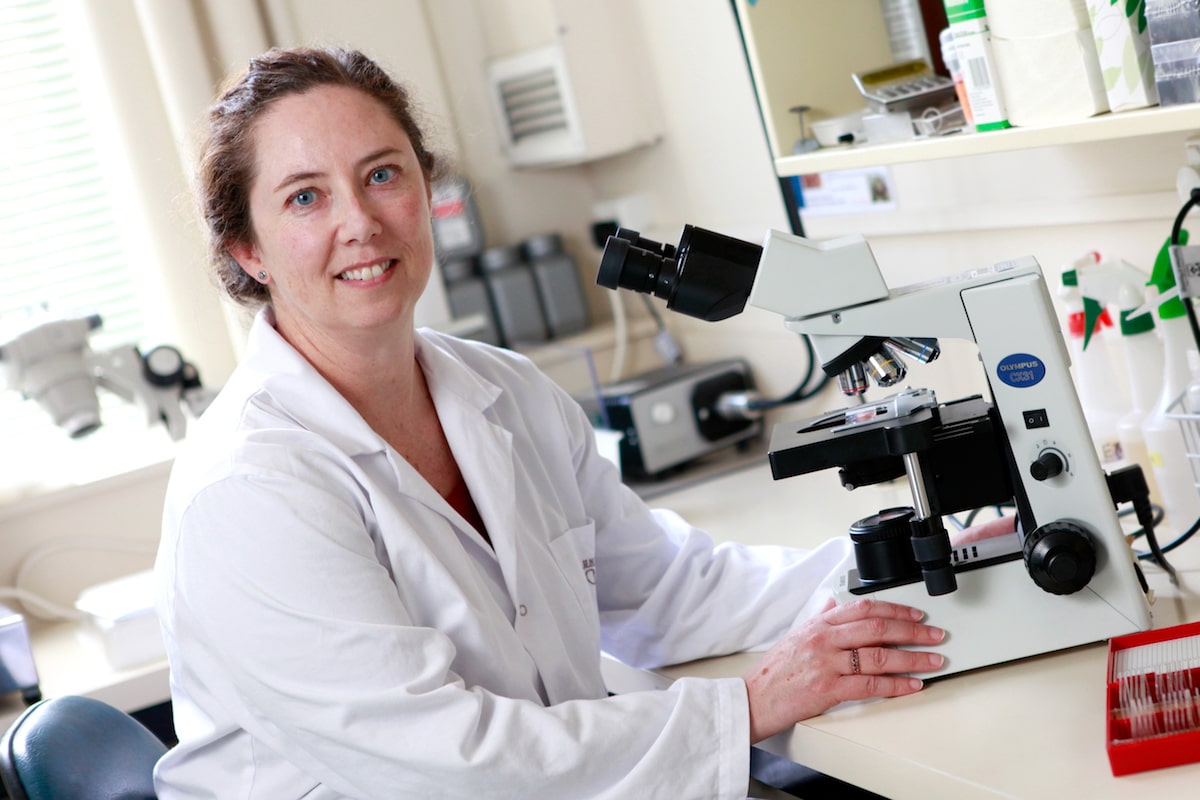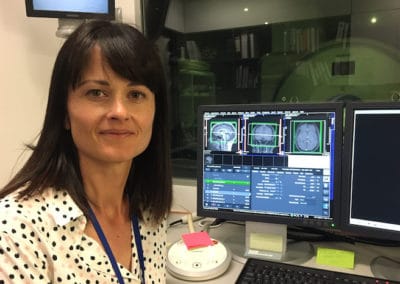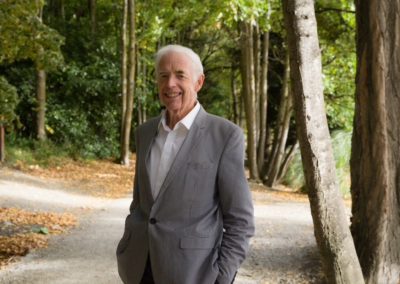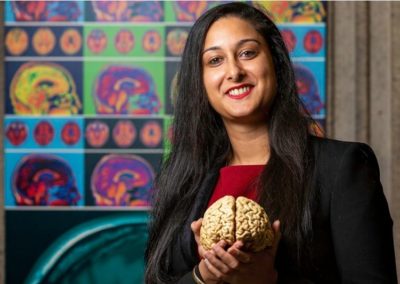Tell us a little bit about your research, what do you do? What do you enjoy most about your work?
I examine how the brain works, how we keep our brain healthy, and how the brain ion changes with Parkinson’s disease. From our findings, I use that information to think of novel ways to restore brain activity. This step is done in the hope to find new treatments to recover brain function in Parkinson’s disease.
My job includes several roles and varied skills. I teach undergraduate and postgraduate students at University. I lead my research team, which means overseeing experiments, teaching them skills and applying for research funding for staff salaries and to cover the costs of doing the experiments. I do a lot of public engagement. I am also the Co-Director, Māori of the Ageing Well National Science Challenge, which means I engage with researchers, stakeholders and communities throughout Aotearoa New Zealand, and am frequently in meetings with other science leaders in ministries in Wellington.
How did you get interested in (neuro)science?
I was interested in health, wellbeing and movement, and wanted to do something that would make a difference. As a teenager, I had no idea how that might evolve. Throughout school and university, I kept taking papers that were of interest to me. Two things fascinated me – diabetes and Parkinson’s disease, which naturally led to focusing my postgraduate research on Parkinson’s disease. I’ve been absolutely hooked since then. Throughout my career, I have loved engaging with the public and communities, and I use those opportunities to share what my team does and why, plus listen to what matters to people living with Parkinson’s disease and their support network of family and friends.
Which (female) scientist inspires you most?
I’ve been inspired by many women. I’ve heard many women give excellent scientific talks. I have many women to thank for positively influencing my career. Dr Di McCarthy is one person who stands out. Di was a Professor in behavioural psychology, Dean and later Pro-Vice-Chancellor at the University of Auckland. Di has strongly advocated for women throughout her career, particularly when she was a member of the Council for the Royal Society. To address inequities, Di established the New Zealand Women in Leadership progamme while she was the Chief Executive of the Royal Society. More recently, as Chair of Ageing Well National Science Challenge’s Governance Group, Di was instrumental in creating equitable Māori leadership and funding opportunities. Women are indebted to Di’s positive influence in the science sector.
What were the greatest challenges you have faced as a female scientist? How have you overcome them?
With time, I’ve realised that some of my greatest challenges were caused by my greatest strengths. Being a Māori woman, I naturally engage openly and collaboratively. I also bring different skills and strengths to the table. When I offered alternative perspectives during discussions earlier in my career, they were overlooked or misunderstood. Science has evolved and is more inclusive. In 2020, science has a responsibility to understand Māori perspectives and to conduct science that will produce equitable outcomes for Māori. Now, my opinion is sought after because I work at the interface of Western and Te Ao Māori world views.
What needs to change to make things better for the next generation of women and girl scientists?
Science needs to be more inclusive. The statistics show that women/girls out-perform men/boys in science through school, university, postgraduate study and postdoctoral stages. However, after that data show that women are more qualified at every promotion, but find it harder to progress through the senior career and leadership stages. The best designed (double blind) studies show that women must have evidence of success for the next career step. In contrast, men only need to show potential. That is at least a 5 year difference and over a career, women in New Zealand earn $400,000 less than men. Hiring and promotions processes must remove biases.
What advice would you give to young women and girls today?
Do what you love – love what you do. Figure out what is important and what drives you to get out of bed each morning, then combine that with what your heart and brain tells you to do. As a scientist, and to be successful in any career, you have to love what you do. That doesn’t mean you love every moment of every day. It means you keep focused on the big picture, envisage what it is like to achieve your goal, and note important steps along the path. Don’t get distracted. Watch out for opportunities that come to you – they are often life changing. Have a support network and good mentors to share your successes and failures, and help you navigate what to do next. During all of this, you will feel excited and often scared… this means you are learning a lot and well on your way to achieving your full potential.
Associate Professor Louise Parr-Brownlie (Ngāti Maniapoto, Te Arawa) is based at the University of Otago. She is a Principal Investigator at Brain Research New Zealand, and Co-Director, Māori of the Ageing Well National Science Challenge.
Read about more inspiring neuroscientists in our Women in Science series.



